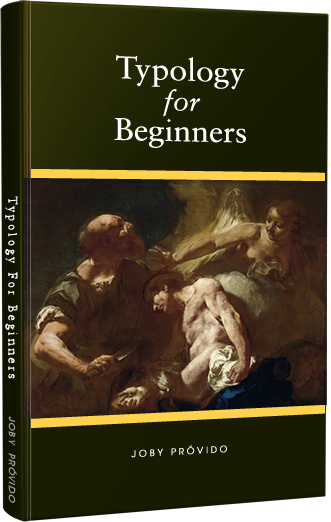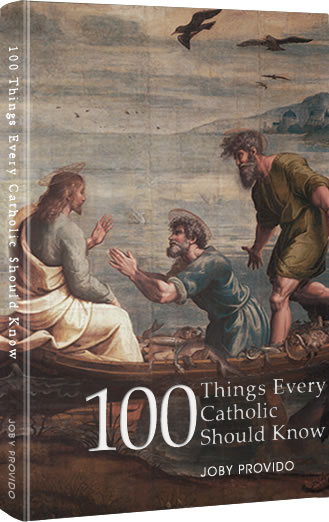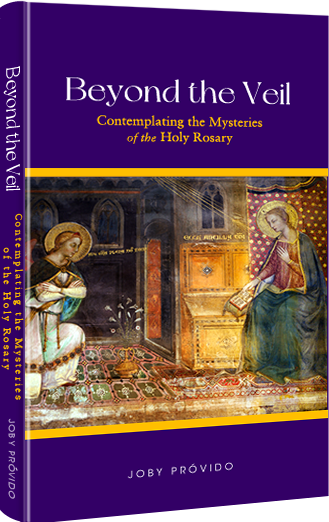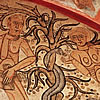How does prayer, fasting, and almsgiving configure us to Christ?
Every Lenten Season we are reminded to pray, fast, and give alms. It has been a tradition in the Church, but some of us ask why this triad of activities?
The three are interrelated in the form of relationships. Prayer is perfecting our relationship with God. Fasting is perfecting the relationship with ourselves. And Almsgiving is perfecting our relationship with our neighbors.
Prayer
Since prayer is putting ourselves in God’s presence, we nurture our relationship with him. I am sure you must have had a childhood friend you were very fond of. There might have been a time you both might have even thought you couldn’t live without one another. But as you grew older, time and geography might have separated you and the relationship became lukewarm. You aren’t enemies; you aren’t best friends; you are just so-called friends.
If that may be okay for some of us, it isn’t okay for God to be just a so-called “friend”; he wants a strong relationship with us the way a bridegroom and a bride have. We know this because the entire Bible is a story of God seeking us so we can be with him, but without infringing our free-will. He is the initiator of all prayer through the inspirations and nudges he gives us to “contact” him, and yet he leaves it up to us to go to him.
When Martha complained that her sister Mary was listening to him while she (Martha) was fussing about with all the chores, Jesus said, “Mary has chosen the better part.” (Luke 10:42) This is what we must do in prayer. We must sit at the master’s feet and listen to him. It is being with him that is important and all prayer (vocal, mental, and contemplative) is directed to this purpose. We Catholics are lucky we have Eucharistic Adoration at our disposal so we can actually be physically present in front of Our Lord. Let’s take advantage of that. If we are not so lucky to have a tabernacle or adoration chapel near us, then the silence of our room will do. The point is to nurture our relationship with God by being with him, by pouring out what is in our hearts to him, by telling him the funny things that happened to us, by nagging him with our needs, and most importantly by listening to him.
Our relationship with God is, in some way, like that of an owner and a plant. If we don’t water and fertilize it, then it will eventually wither and die. Let’s water our relationship with God every day. Let’s fertilize it with heartfelt and candid conversations with him. Jesus consistently separated himself from the crowd so he could pray to the Father in some lonely place. If Jesus is God, and he needed to pray; what more of us mere creatures? Let us then follow the admonition of St. Paul when he told the Corinthians, “Devote yourselves to prayer.” (1 Corinthians 7:5)
Fasting
From the start, God acted as a good father who tells us what is good and what is not. He told Adam, “You shall not eat of the tree of knowledge of good and evil… when you eat of it you shall die.” (Genesis 2:16-17) He also gave us the Ten Commandments as the moral code to follow. Adam and Eve disobeyed God, and throughout the generations, we have been disobeying him. It would seem, then, that we have a problem with controlling our passions. This is because it is an effect of original sin.
When God created humankind, he perfected our nature by giving us graces. One of these was the integrity of the mind and body. This meant that the body was subservient to the will. Sadly, when Adam and Eve spurned the love of God, they, in a sense, wanted to live a life without him. In his love, God gave them exactly that. But since the graces God gave Adam and Eve depended on him, when God was separated from them, the graces didn’t remain with them.
Without this particular grace, our body rebels against our will. Our body doesn’t want to wake up in the morning even if we know we should. Our body gives in to our lust even if we know it is wrong. Our body eats or drinks too much until our stomach aches or we get intoxicated. In short, our passions, unbridled, take over us.
Fasting is an exercise to control our passions. It develops the virtue of chastity – having a pure heart in responding to sexual desires. This, of course, is not just about sex; it is about regulating all our passions: the desire for approval, the desire for praise, the desire for money and things, the desire for pleasure, etc. In this context, fasting is a means of perfecting ourselves the way God wants us to be perfect.
One underlying question is, why do we want to do this? Do we do this just to be good? Do we do this because the Church tells us to? We do this because it is what God originally wanted for us. This is why prayer is the most important of the three because we eventually get a sense of God wants of us, and we respond accordingly. Fasting coupled with prayer will help us pray like Christ when he told the Father, “not my will be done, but yours.” (Mark 14:36)
Almsgiving
Christ on the cross is the perfect example of giving. It is an image of self-emptying. Christ saved nothing for himself. He gave his life to the father figuratively when he dedicated his life to his mission in obedience to the father, and literally when he died on the cross. Even when it seemed he had nothing more to give, a lance penetrated his side to draw whatever blood and water were left inside of him.
This is what we are being asked to do when we give alms: we empty ourselves and give it to others. So while literal almsgiving is handing on money or things to others, we can also give our time to those who need it, and our knowledge to those who want to learn. In this context, it makes sense when Saint Mother Teresa of Calcutta said: “Give until it hurts, because real love hurts.” (From the book One Heart Full of Love: quotations of Mother Teresa.) If we give out of our abundance, it is good but it isn’t love. If we give a portion of the time, money, and resources that were intended for us, then that is real almsgiving.
Almsgiving is connected to Fasting because how can one give to others if he or she has no self-discipline that fasting can do. Our will must control our body so it doesn’t only crave good for itself, but also for others. Saint John Chrysostom said it eloquently: “what good is it if you don’t eat meat or poultry, and yet you bite and devour your brothers and sisters?”
Almsgiving is also connected to prayer because how can we say we love God if we do not love our neighbor in whom God dwells? The parable of the Judgment of the Nations is clear about this when Christ said: “Amen, I say to you, whatever you did for one of these least brothers of mine, you did for me.” (Matthew 25:31-46)
Conclusion
When the Church asks us to do these three things during Lent, it is meant to jumpstart our conversion to God and the perfection of ourselves by being like Christ. It isn’t meant just for Lent, and then do whatever we want during the year. It is mean to configure us to Christ every day. Let’s resolve to continue this practice all throughout our lives to remind ourselves that our life isn’t about ourselves; it is about others.

Typology for Beginners
A Catholic Perspective on understanding the New Testament through the Old Testament
First-century Jews converted to Christianity in droves because of the way the New Testament was written to show Jesus was the Messiah promised by the Old Testament. We also learn about how Mary is the New Eve and the Ark of the Covenant in the way the writers portray her.
Through typology, the patterns that connect the Old and New Testaments make the Bible stories more accessible so that one becomes excited to read Sacred Scripture again.
Get your copy now either in Hardbound, Paperback, or Kindle

100 Things Every Catholic Should Know
Whether or not you are new to the Catholic Church, or struggling, or lapsed, or dynamically involved, this book will enlighten you with the essentials of the Faith that have been handed down to us by the apostles.
Each of the 100 topics is easy to read and distilled into bite-sized portions. Through cross-referencing, the book also shows how the topics are interrelated. Those who are new to the Faith will find this book an edifying handy reference, and those who have simply forgotten will find it a great review material that might spark a new love for God and religion.
Get your copy now either in Hardbound, Paperback, or Kindle

A Sky Full of Stars
Know Our Lady through her Titles in the Litany
The Church helps us understand who Mary is by honoring her with different titles in the Litany of the Blessed Virgin Mary. Unfortunately, over time and difference of culture, we might not grasp what it is the Church is ascribing to her and lose that opportinity to get to know her.
In A Sky Full of Stars, each title of the Litany is explained so we get know Mary more and fall in love with her all over again.
Get your copy now either in Hardbound, Paperback, or Kindle

Beyond the Veil
Contemplating the Mysteries of the Holy Rosary
Prayer giants like Pope St. John Paul II, Pope Paul VI, Bl. Archbishop Fulton Sheen, and Bishop Robert Baron advocate that we contemplate on the mysteries of the rosary while we say the vocal prayers. Unfortunately, there are not many books that teach us how to do this. Beyond the Veil comes to the rescue by suggesting seven ways we can pray the rosary the way it was intended.
The larger part of the book offers mental images for each of the mysteries we can use in our contemplation, for how can we imagine the scenes in the rosary if we don't know about them?
Get your copy now either in Hardbound, Paperback, or Kindle































